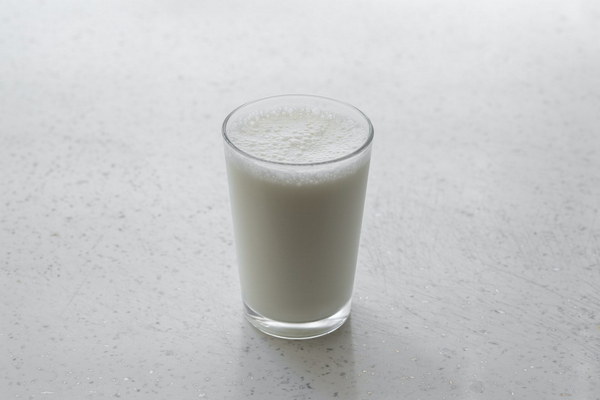Enhance Liver Health and Wellness A Comprehensive Guide to Exercise and Nutrition
In the fast-paced modern world, taking care of our liver health has become more crucial than ever. The liver is an essential organ responsible for filtering toxins from the body, metabolizing nutrients, and producing bile to aid in digestion. However, poor diet, lack of exercise, and increased stress levels can put our liver at risk. In this article, we will delve into the importance of maintaining liver health and offer practical tips on how to achieve this through exercise and nutrition.
1. Importance of Liver Health
The liver performs numerous critical functions in the body, including:
- Filtering blood: The liver filters out toxins and harmful substances from the blood, preventing them from causing damage to other organs.

- Metabolizing nutrients: The liver converts nutrients from the food we eat into energy, storing them for future use.
- Producing bile: Bile is essential for the digestion and absorption of fats and fat-soluble vitamins.
- Detoxification: The liver helps to eliminate waste products and toxins from the body, ensuring that they are not reabsorbed.
2. Exercise for Liver Health
Regular exercise plays a vital role in maintaining liver health. Here are some ways in which exercise can benefit your liver:
- Improves metabolism: Exercise helps to increase the body's metabolic rate, which can help in the breakdown of harmful substances and the production of new cells.
- Reduces fat accumulation: Excess fat in the liver can lead to non-alcoholic fatty liver disease (NAFLD). Regular exercise can help reduce liver fat and improve liver function.
- Enhances detoxification: Physical activity increases blood circulation, which can help in the efficient elimination of toxins from the body.
- Boosts immune system: A strong immune system can protect the liver from infections and diseases.
To maintain liver health through exercise, consider the following tips:
- Engage in moderate-intensity aerobic exercise for at least 150 minutes per week, such as brisk walking, cycling, or swimming.
- Incorporate strength training exercises into your routine to build muscle mass and improve metabolism.
- Practice flexibility exercises, such as yoga or stretching, to reduce stress and improve overall well-being.
3. Nutrition for Liver Health
A balanced diet is crucial for maintaining liver health. Here are some dietary tips to help you support your liver:
- Consume a variety of fruits and vegetables: These are rich in antioxidants and fiber, which can help protect the liver from damage and promote detoxification.
- Eat lean proteins: Lean proteins, such as fish, poultry, and legumes, can help reduce inflammation and support liver function.
- Limit alcohol consumption: Alcohol can cause liver damage, so it's best to avoid excessive alcohol intake.
- Choose whole grains: Whole grains are rich in fiber and can help regulate blood sugar levels, reducing the risk of fatty liver disease.
- Stay hydrated: Drinking plenty of water can help flush out toxins from the liver and keep it functioning properly.
4. Lifestyle Modifications
In addition to exercise and nutrition, adopting a healthy lifestyle can significantly improve liver health:
- Get enough sleep: Adequate sleep is essential for overall health, including liver function.
- Manage stress: High levels of stress can lead to the release of harmful chemicals in the body, putting the liver at risk.
- Avoid smoking: Smoking can increase the risk of liver disease and hinder liver function.
In conclusion, maintaining liver health is essential for overall well-being. By incorporating regular exercise, a balanced diet, and a healthy lifestyle, you can significantly reduce the risk of liver disease and support your liver's natural functions. Remember that taking care of your liver is an ongoing process, and it's never too late to start making positive changes.









